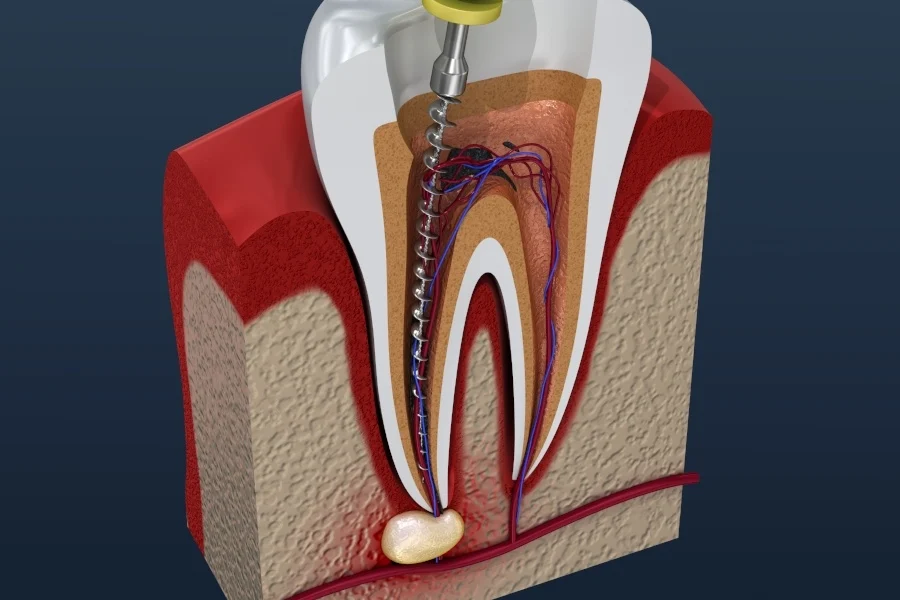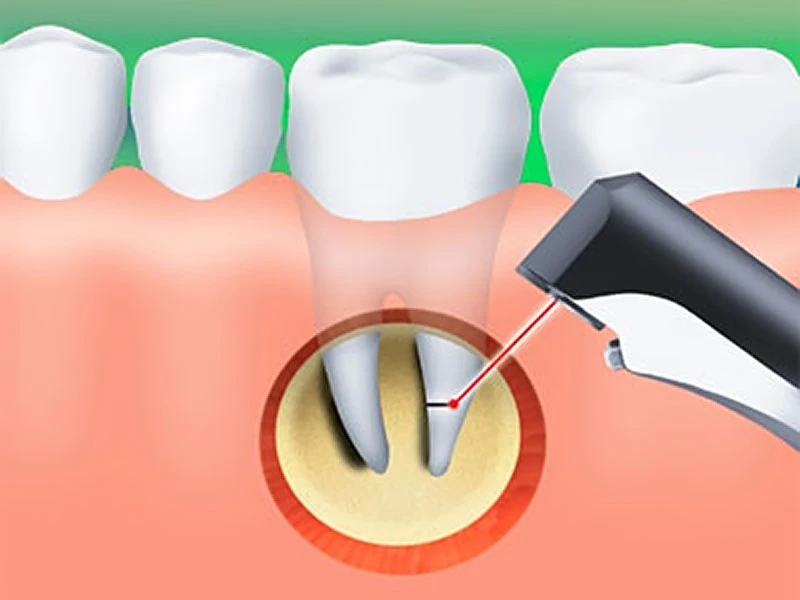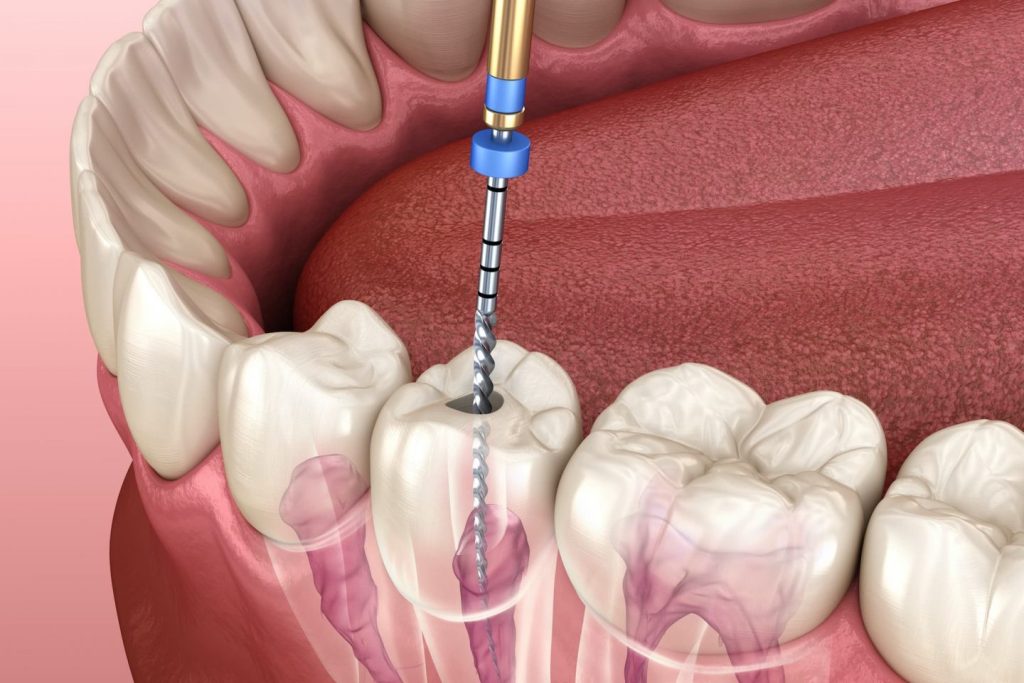The throbbing tooth pain that wakes you at 3 AM signals more than just discomfort—it’s your body’s alarm system announcing that the dental pulp inside your tooth is under siege. Root canal treatment often gets unfairly branded as the villain in dental nightmares, yet this endodontic therapy represents one of dentistry’s most successful tooth-saving procedures. While dental implant technology offers impressive alternatives, preserving your natural root structure through root canal procedure provides benefits that artificial replacements simply cannot match. Understanding this dental treatment transforms fear into informed decision-making about your oral health future.
Understanding Root Canal Therapy and When It’s Needed
Root canal therapy addresses infection and inflammation within the pulp chamber of your tooth, where nerve tissue, blood vessels, and connective tissue reside. When bacteria penetrate this inner sanctum through cavities, cracks, or trauma, endodontic treatment becomes necessary to save the natural tooth.
Anatomy of the Problem: The root canal system extends from the pulp chamber down through the root channels to the apical foramen, where nerves and blood vessels enter the tooth. Bacterial invasion causes dental pulp death, leading to abscess formation and severe dental pain. Without intervention, infection spreads to periapical tissues, causing gum swelling and potential tooth loss.
Common Root Canal Symptoms:
- Severe toothache when chewing or applying pressure
- Prolonged sensitivity to hot or cold temperatures
- Darkening or discoloration of the tooth
- Swelling and tenderness in nearby gums
- Recurring dental abscess or pimple on the gums
Diagnostic Process: Dental X-rays and digital X-rays reveal infection extent and root structure complexity. Radiograph imaging helps the endodontist or dentist assess whether root canal treatment can successfully save the tooth. Advanced imaging may show abscess formation and bone damage around root tips.
When Root Canal Treatment Is Recommended: Endodontic therapy becomes necessary when dental pulp becomes irreversibly damaged or infected. Cavities that reach the pulp chamber, traumatic injuries, or repeated dental procedures on the same tooth can necessitate root canal procedure. Symptoms may range from mild discomfort to excruciating tooth pain requiring emergency dental treatment.
Alternative Considerations: Without root canal treatment, the infected tooth typically requires extraction followed by dental implant, bridge, or partial denture replacement. These alternatives involve more complex dental procedures, higher costs, and longer treatment timelines compared to endodontic treatment.

The Root Canal Procedure: Step by Step
Modern root canal procedure techniques have evolved significantly, making treatment more comfortable and predictable than ever before. Endodontic therapy typically requires one to three appointments depending on case complexity and infection severity.
Pre-Treatment Preparation: Patient evaluation includes comprehensive dental checkups, X-rays analysis, and medical history review. Antibiotics may be prescribed before treatment if significant swelling or abscess formation exists. Patient education videos and discussions about the procedure help reduce anxiety and ensure informed consent.
Anesthesia and Access: Local anesthesia ensures patient comfort throughout the root canal procedure. The dentist or endodontist places a rubber dam or dental dam to isolate the tooth and prevent bacterial contamination. Endodontic access involves creating a small opening through the tooth crown to reach the pulp chamber.
Cleaning and Shaping:
- Dental instruments remove infected dental pulp and nerve tissue
- Root canal system is carefully cleaned and shaped
- Irrigating solutions flush out bacteria and debris
- Multiple irrigation solutions ensure thorough disinfection
- Root canals are enlarged to facilitate complete cleaning
Sealing Process: Once thoroughly cleaned and dried, root canals are filled with gutta-percha, a biocompatible filling material. Sealer paste helps bond the gutta percha to root canal walls, creating a tight seal preventing future bacterial invasion. Sealing the tooth properly is crucial for long-term success.
Temporary Restoration: A temporary filling protects the access opening between appointments. Follow-up appointments may be necessary for complex cases or if symptoms persist. Digital X-rays confirm complete root canal filling and proper sealer paste placement.
Potential Complications: While rare, instrument fractures or complex root anatomy may complicate treatment. Endodontic retreatment or root canal surgery may be necessary if initial treatment fails. Root canal specialist consultation helps manage challenging cases requiring advanced techniques.
Recovery and Aftercare
Recovery from root canal treatment typically involves mild discomfort manageable with over-the-counter pain relief medications. Proper follow-up care ensures optimal healing and long-term treatment success.
Immediate Post-Treatment Care:
- Soft foods diet for 24-48 hours after treatment
- Avoid chewing on the treated tooth until permanent crown placement
- Painkiller medications as prescribed for pain relief
- Continue oral hygiene routine avoiding the treated area initially
- Contact the dental centre if severe pain or swelling develops
Healing Timeline: Most patients experience mild discomfort for 2-3 days following endodontic therapy. Gum swelling and sensitivity typically resolve within a week. Follow-up appointments monitor healing progress and determine appropriate timing for crown restoration.
Final Restoration Importance: Root canal treatment removes the dental pulp, making the tooth more brittle and susceptible to fracture. Permanent crown placement provides essential protection and restoration of full function. Artificial crown options include porcelain fused to metal, all-ceramic, or gold dental crown materials.

Crown Placement Process: Crown restoration typically occurs 2-4 weeks after root canal procedure completion. Dental technician fabricates the permanent crown based on dental impressions. Post placement may be necessary if significant tooth structure is missing, providing additional crown retention.
Long-Term Care: Dental checkups every six months monitor the treated tooth and surrounding tissues. Proper oral hygiene prevents new cavities that could compromise treatment success. Digital X-rays during routine visits ensure no infection recurrence or complications develop.
Success Rates and Longevity: Endodontic treatment success rates exceed 90% when properly performed and restored. With appropriate crown restoration and oral hygiene, treated teeth can last a lifetime. Root canal retreatment may be necessary if symptoms recur or new infection develops.
Alternatives to Root Canal Treatment
When root canal therapy isn’t viable or patients prefer alternatives, several options exist for addressing severely damaged or infected teeth. Understanding these alternatives helps patients make informed decisions about their dental treatment.
Tooth Extraction and Replacement:
- Dental implant placement after healing
- Bridge construction using adjacent teeth
- Removable partial denture option
- No replacement leaving space empty
Implant Considerations: Dental implant treatment involves surgical placement of a titanium post into the jawbone, followed by crown attachment. While implants provide excellent function and aesthetics, they require healthy bone and gums, longer treatment time, and higher costs compared to root canal treatment.
Bridge Alternatives: Bridge construction requires preparation of adjacent healthy teeth to support the replacement tooth. This irreversibly alters healthy tooth structure and creates additional maintenance requirements. Bridge longevity depends on the health of supporting teeth.
Cost Comparisons: Root canal treatment with crown restoration typically costs significantly less than dental implant or bridge alternatives. Endodontic therapy preserves natural root structure, maintaining bone support and avoiding complex surgical procedures.
Preservation Benefits: Natural teeth provide superior chewing efficiency and sensory feedback compared to artificial replacements. Root preservation maintains jawbone density and prevents adjacent teeth shifting. Endodontic treatment respects the principle of conservative dentistry.
Why Choose Delta Park Dental?
Delta Park Dental distinguishes itself in Canada’s competitive dental landscape through advanced endodontic therapy capabilities, patient-centered care, and commitment to preserving natural teeth through expert root canal treatment.
Endodontic Expertise: Our experienced dentist team provides comprehensive root canal procedure services using the latest dental instruments and techniques. We utilize digital X-rays for precise diagnosis and rubber dam isolation for optimal treatment conditions. Gutta-percha placement and sealer paste application follow the highest endodontic standards.

Advanced Technology: Digital X-rays reduce radiation exposure while providing superior image quality for root canal symptoms diagnosis. Irrigating solutions and modern dental drill techniques ensure thorough bacterial elimination and root canal system cleaning. Patient education videos help clients understand learning about root canals and treatment expectations.
Comprehensive Care: Beyond endodontic treatment, we provide complete restoration services including permanent crown fabrication and post placement when necessary. Our dental technician partnerships ensure high-quality crown restoration meeting individual aesthetic and functional needs.
Patient Comfort Focus: Local anesthesia techniques and sedation options ensure comfortable treatment experiences. Pain relief protocols and follow-up care instructions help manage recovery effectively. Antibiotics prescriptions when indicated prevent infection complications.
Emergency Services: Dental pain and abscess formation require prompt attention. Our emergency protocols ensure timely appointment availability for urgent root canal symptoms. Follow-up appointments monitor healing progress and address any complications promptly.
Educational Approach: Patient education emphasizes oral hygiene importance and preventive care strategies. Dental checkups recommendations help prevent future cavities and dental pulp problems. Health Link resources and comprehensive consultations ensure informed treatment decisions.
Insurance and Payment: We work with various dental insurance plans and offer flexible payment options making endodontic therapy accessible. NHS dental treatment coordination and insurance claim assistance simplify administrative processes for patients.
Specialist Coordination: Complex cases benefit from endodontist or root canal specialist consultations. Pediatric dentist referrals ensure appropriate care for younger patients. Prosthodontist collaboration optimizes crown restoration outcomes for challenging cases.
Conclusion
Root canal therapy represents modern dentistry’s most effective method for preserving natural teeth threatened by infection or severe decay. This endodontic treatment saves millions of teeth annually, allowing patients to maintain their natural smile and optimal oral function. While alternatives like dental implants exist, root canal procedure offers the most conservative approach to tooth preservation. Understanding the treatment process, recovery expectations, and long-term benefits empowers patients to make informed decisions about their dental health and choose endodontic therapy when appropriate for lasting oral wellness.
Tags
- Dental Bridges
- Veeners Dental
- Veeners Dental Near Me
- Root Canal Treatment near me
- Dental Bonding In Brampton
- Bridge Dental Brampton
- Dental Bridge Brampton
- Emergency Dental Brampton
- Dental Bridges Near Me
- Dental Veneers Near Me
- Veneers Dental
- Root Canal Therapy
- Dental Emergency Near Me
- Emergency Dentistry
- Brampton Dental Implant
- Dental Implant Brampton
- Dental Implant
- Dental Implant in Brampton
- Dental Veneers
- Dental Veneer
- Dental Filling Before and After
- Whiten Teeth
- crown dental implant
- Dental Crown in Brampton
- Whitening Teeth
- Wisdom Teeth Removal
- Dental Bonding
- Dental Bonding Near me
- Dental Crown Near Me
- Dental Crown Brampton
- Wisdom Teeth Extraction
- Wisdom Tooth Removal
- Dental Crown
- Dental Teeth Whitening
- Wisdom Tooth Extraction
- Dental Filling Brampton
- Dental Filling
- Teeth Whitening Dentist
- Dental Fillings
- Teeth Extraction
- Dental Filling Near me
- Teeth Whitening Near Me
- Dental Emergency Brampton
- Tooth Extraction
- Emergency Dentistry Services



